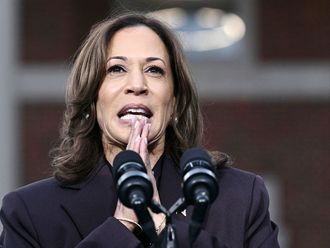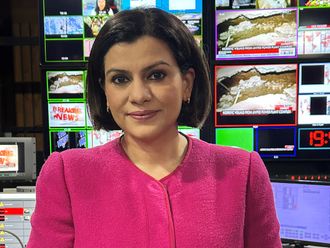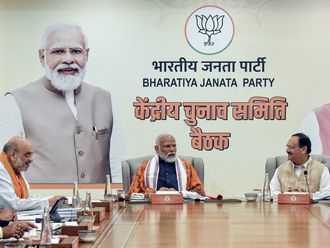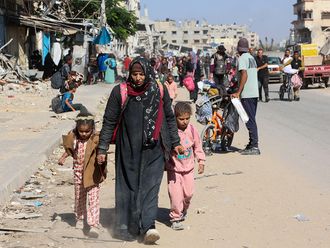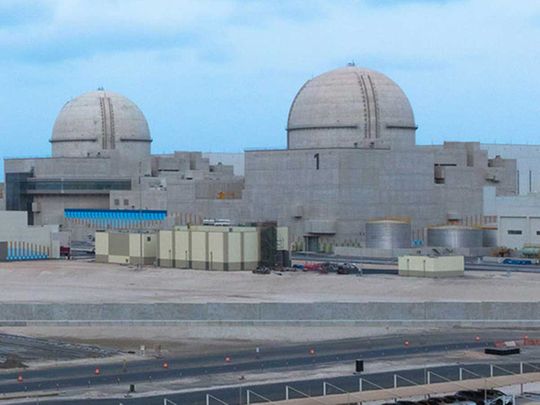
Last Saturday, I had dinner with a group of American researchers from the Boston area who were on a research tour in the Gulf. The focus of the discussion was understandably the current affairs in the Arab world and challenges facing the region.
The restaurant they chose was in the heart of historic Dubai, in the old creek area. Naturally, the historic background of that area was the starting point of a two-hour conversation. We were having dinner at exactly the place where the ‘Dubai story’ all began.
In a few decades, the UAE and Dubai have grown to become, not only a regional trade hub, innovation society and key political player but also a confidently rising global destination of multinational commerce and tourism and an example of progressive, modern and multicultural country.
In our chat there was no escape from the usual comparison between the UAE and other countries in the Middle East, especially ‘the historic capitals’ such as Damascus, Beirut and Baghdad among others, notably the decline of those beautiful cities vis-a-vis the rise of Gulf capitals as the new centre of power in the Middle East. While Lebanon was once called ‘the Switzerland of the East’, today it can hardly secure a regular electricity service to its citizens. Corruption is so rampant; the country is on the verge of economic collapse.
The streets of Baghdad resemble a war zone and those in Syria are actually just that; war zones choke-full with military checkpoints and ruthless armed militias.
The Unit 1 reactor makes up the first of four reactors at the Barakah nuclear site; when completed, all four reactors will contribute to 25 per cent of the UAE’s electricity generation and will also reduce CO2 emissions by 21 million tonnes annually.
As these countries kept busy with power politics and military adventurism in the past four decades, the UAE focused on development and building a sustainable modern way of life for its people. It went from merely small towns scattered on the western shores of the Arabian Gulf to a vibrant country. Emirati cities today are being mentioned in the same breath as New York, London and Tokyo.
In our region, which is infested with armed conflicts, occupation and human travesty, the UAE is a major donor to the less fortunate. It helps fight poverty and disease in many parts of the world.
Elite club of 30 nations
Thus, only a very few were surprised when on Monday, the UAE’s Barakah Nuclear Power Plant, Unit 1 reactor, secured an operating licence from the federal regulator, the Federal Authority for Nuclear Energy (FANR). The reactor should be operational very soon, making the UAE the first Arab country ever to operate a peaceful nuclear power plant. Unit 1 makes up the first of four reactors at the Barakah nuclear site.
When completed, all four reactors will contribute to 25 per cent of the UAE’s electricity generation and will also reduce CO2 emissions by 21 million tonnes annually. The $32 billion (Dh117 billion) Barakah plant, in Al Dhafra region, has a lifespan of 60 years.
The UAE joins an elite club of 30 nations that operate 400 reactors, which generate 10 per cent of the world’s electricity needs. Nuclear power is a form of clean energy as it does not need to burn anything to create steam, therefore, it does not emit greenhouse gases like methane or CO2. Also, it is cost effective because of the low cost of uranium and unlike wind and solar, nuclear is a consistent, reliable source of energy, which can run uninterrupted for up to a year.
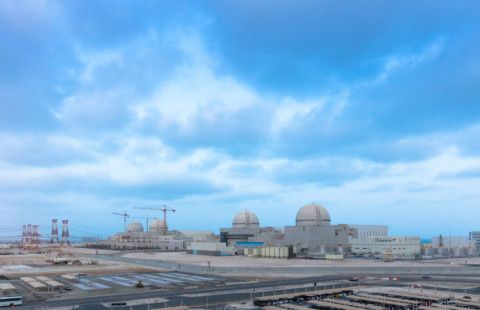
50-year plan for the post-oil era
Most Arabs received the news with admiration; of course, but only few of them were actually surprised because the UAE has raised the bar so high, the news of inaugurating a nuclear plant or launching a probe mission to Mars has become synonymous with a country that is now preparing for post-oil era with a 50-year plan.
The inauguration of Barakah plant is no doubt a historic moment in the region’s history. It is a new chapter in the UAE story. But it is only the beginning of another chapter that will again wow us all.
The Barakah nuclear power plant was just an idea 20 years ago. Today it is a reality. The UAE itself was just an idea at the end of the 1960s, when the founders got together and decided to build a united nation. Today it is an advanced country whose system of governance, innovation and pursuit of happiness is being emulated by other nations.



